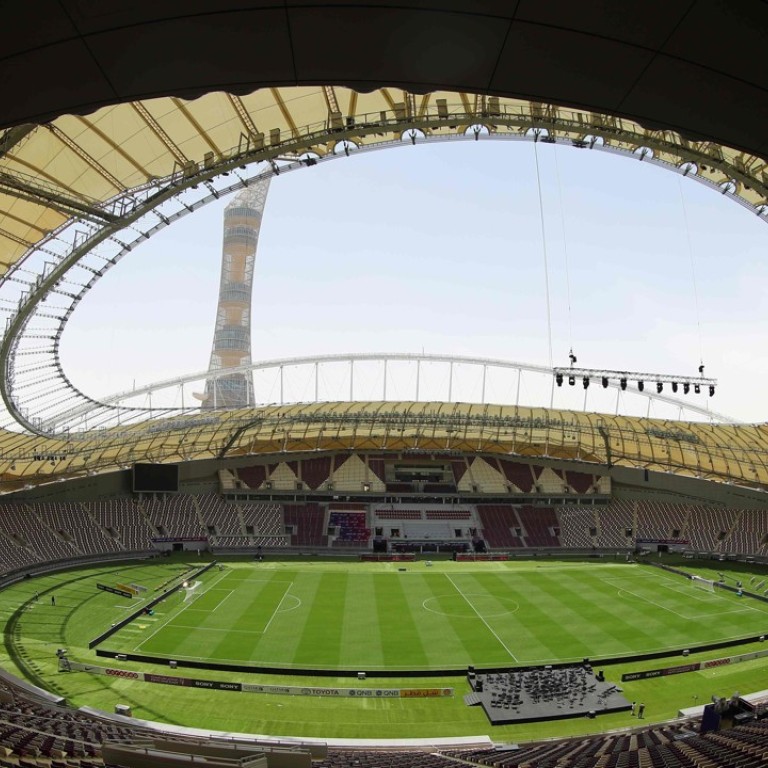
Qatar’s controversial 2022 World Cup back in the spotlight as spat highlights challenges ahead
Diplomatic crisis sweeping the region could have long-term repercussions for the country’s sports ambitions
Earlier this week, Saudi Arabia, the United Arab Emirates, Bahrain and Egypt cut diplomatic ties with Qatar. They were later joined by Libya, Yemen and Mauritius, effectively isolating their neighbour. While the scale and speed of this action took some by surprise, trouble had been brewing for some time.
Two weeks earlier, several countries had blocked Qatari news sites, following statements on social media purportedly made by the Qatari emir criticising Saudi Arabia. Doha officials responded claiming that the news was the result of a “shameful cybercrime”.
In truth however, the matter goes much further back than what might seem like a short-term diplomatic spat.
In 2014, Saudi Arabia, Bahrain and United Arab Emirates pulled their ambassadors out of Qatar after its alleged interference in their domestic affairs.
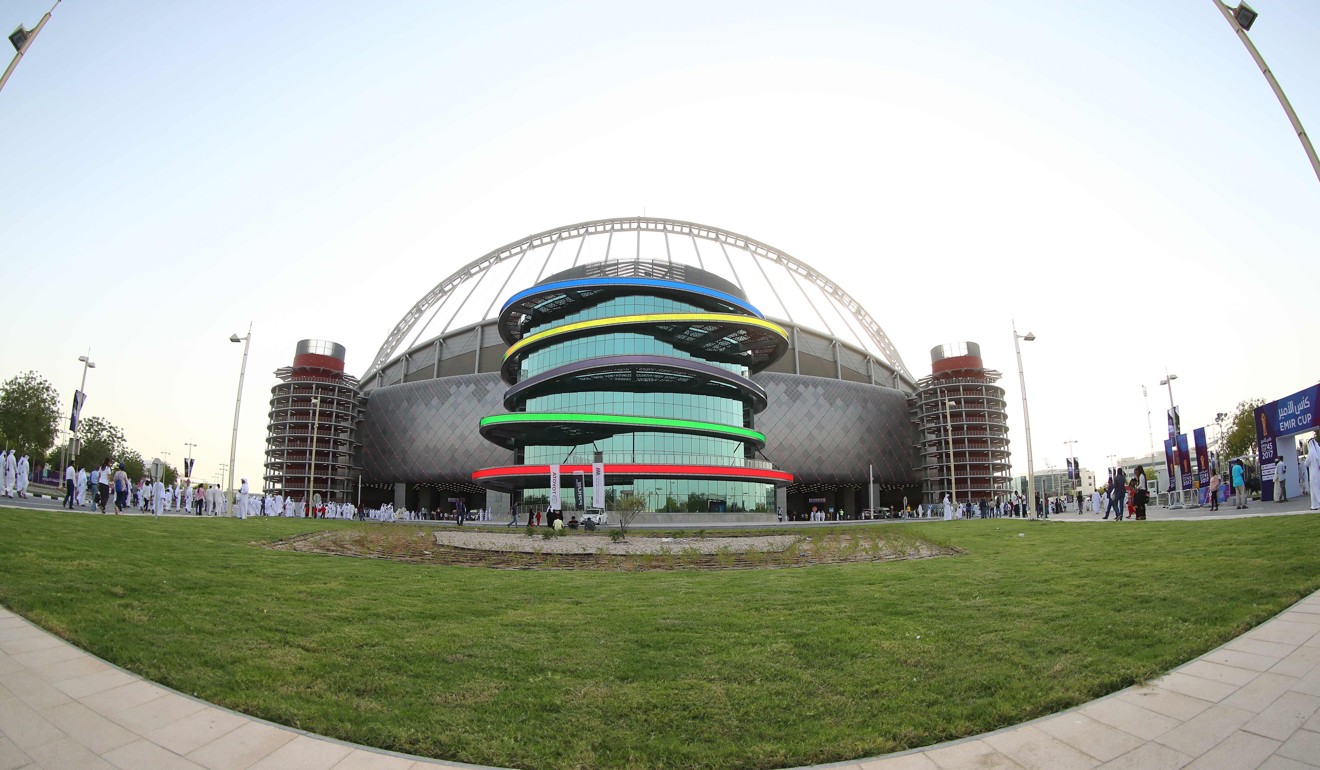
Similar allegations are currently being made, with an official Saudi statement accusing Doha of collaborating with Iranian-backed terrorist groups in the east of the country, and in Bahrain.
However, there is more to concerns among Qatar’s neighbours about the world’s richest per capita nation.
Allegations continue that Qatar has been funding Isis, is linked to the Nusra Front (an al-Qaeda affiliate) and has long supported the Muslim Brotherhood.
The latest squabble could have far-reaching economic and political consequences for the region. One dimension worth considering is what the latest problems to confront Qatar might mean for the country’s sporting ambitions.
Since Fifa’s award of the 2022 World Cup to Qatar back in 2010, the country has constantly been in the news.
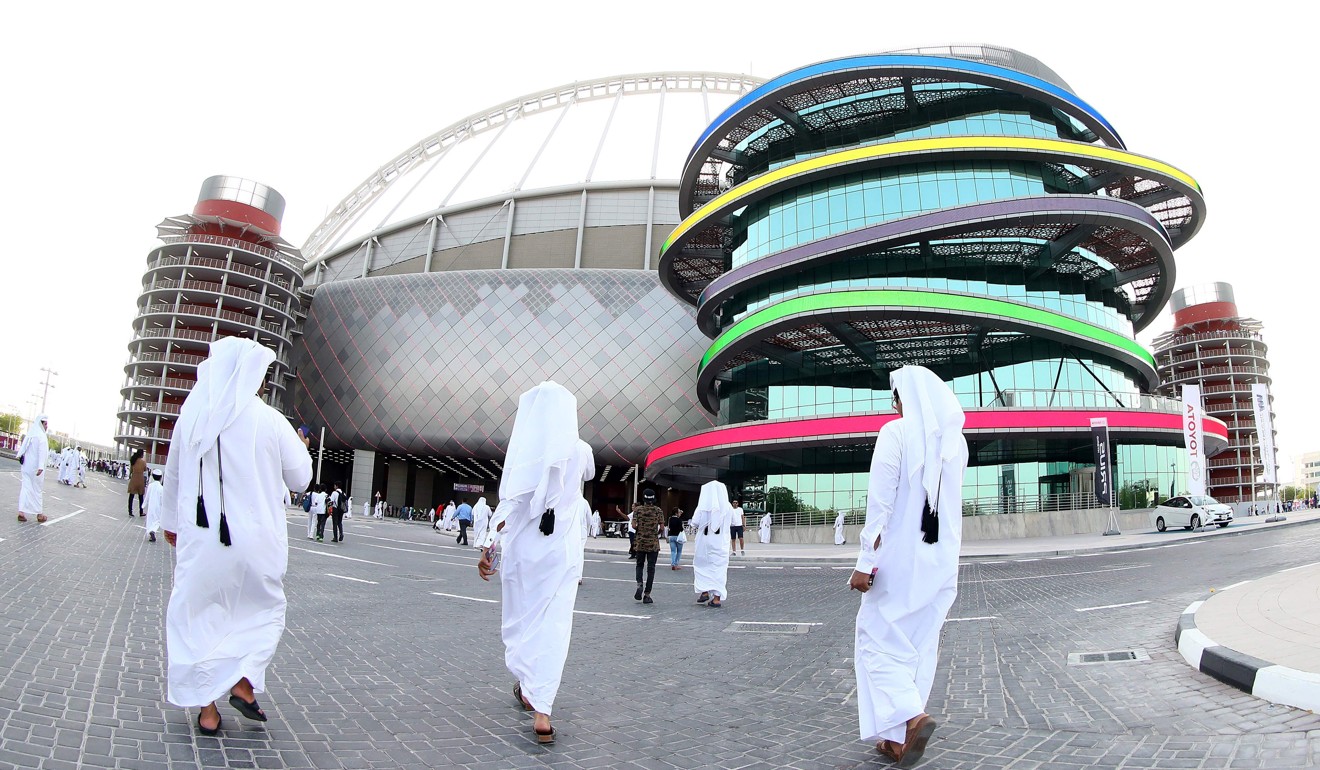
Initially, it became embroiled in allegations about corruption and vote rigging; later, the nation’s use of immigrant labour as part of its “kafala” labour system came under the spotlight.
Now the country’s broader diplomatic and international strategies are causing some to speculate what their impact might be on football’s showcase tournament in 2022 and, indeed, on Qatar’s sports investments in general.
Will Gulf crisis see Qatar stripped of football’s World Cup?
One reference point for anyone seeking to understand the former British protectorate is Mehran Kamrava’s book Qatar – Small State, Big Politics.
Irrespective of what happens before and during the 2022 World Cup, Kamrava’s thesis makes clear how complex the country and its relations with its near neighbours and allies are, and how significant sport is to Doha’s government.
Essentially, Kamrava explains that Qatar is a small, strategically vulnerable country keen both to protect itself but also to become a regional and global power broker.
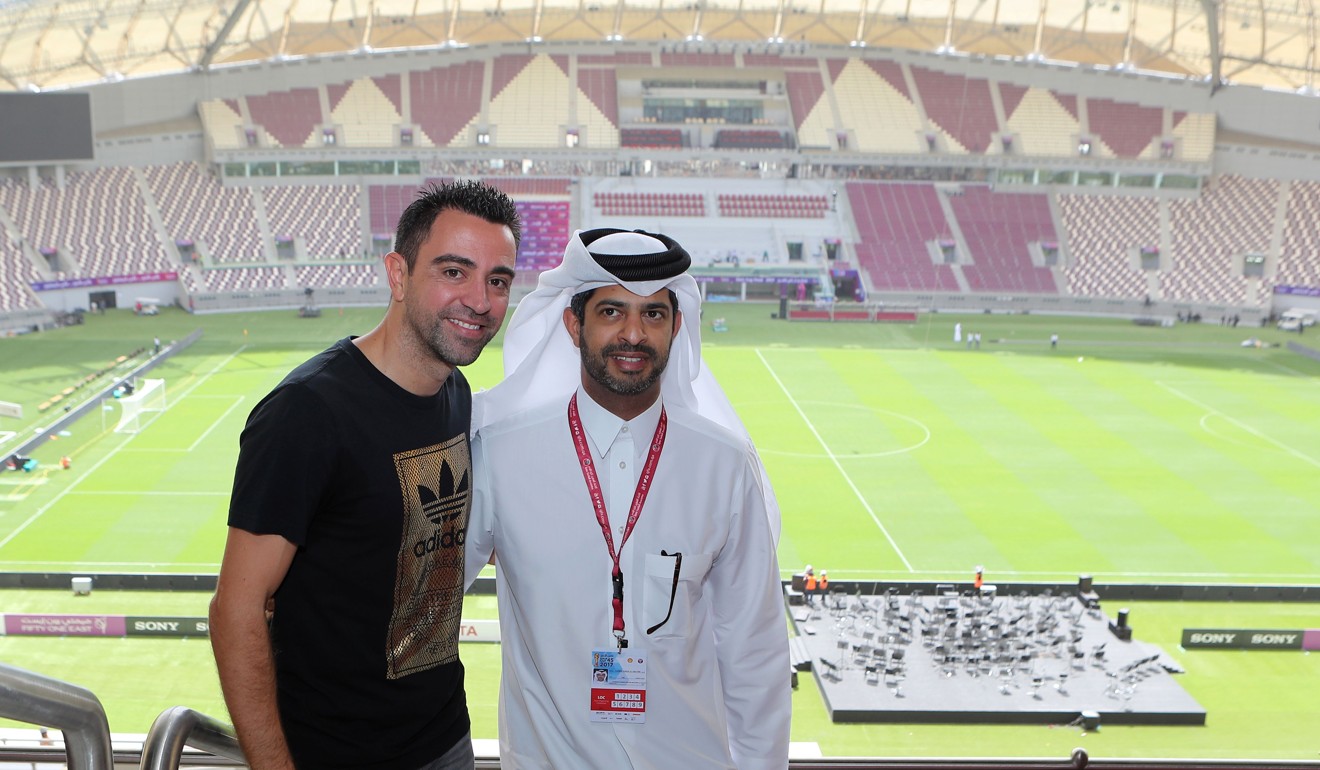
The World Cup is part of this strategy, in that it has put Qatar centre stage in world football. At the same time, it has also given the international community reasons to be mindful of Qatar’s exposure to instability from within certain parts of the Middle East and North Africa.
Yet Qatar remains vulnerable, not least because of its size and geographic position. Furthermore, it is hugely reliant on oil and gas exports for its revenues, and upon imports of food and the materials it needs to sustain its World Cup dream.
China joint-venture to build Qatar World Cup stadium
As such, Kamrava asserts that Qatar engages in diplomatic hedging as a means of addressing some of the threats it faces, both generally and in the context of 2022.
Consequently, Doha has repeatedly emphasised that its near neighbours are very important to the success of its World Cup staging.
At the same time though, Doha has also been accused (not least by these near neighbours) of doing little to tackle the threats posed by more radical groups from across the Middle East and North Africa.
This week’s action should leave Qatar (and us) in no doubt that the next five years are going to be challenging. At this point, unless Fifa, the Gulf Cooperation Council, the FBI or some other organisation decides otherwise, it seems unlikely that the country will lose the right to stage the World Cup.
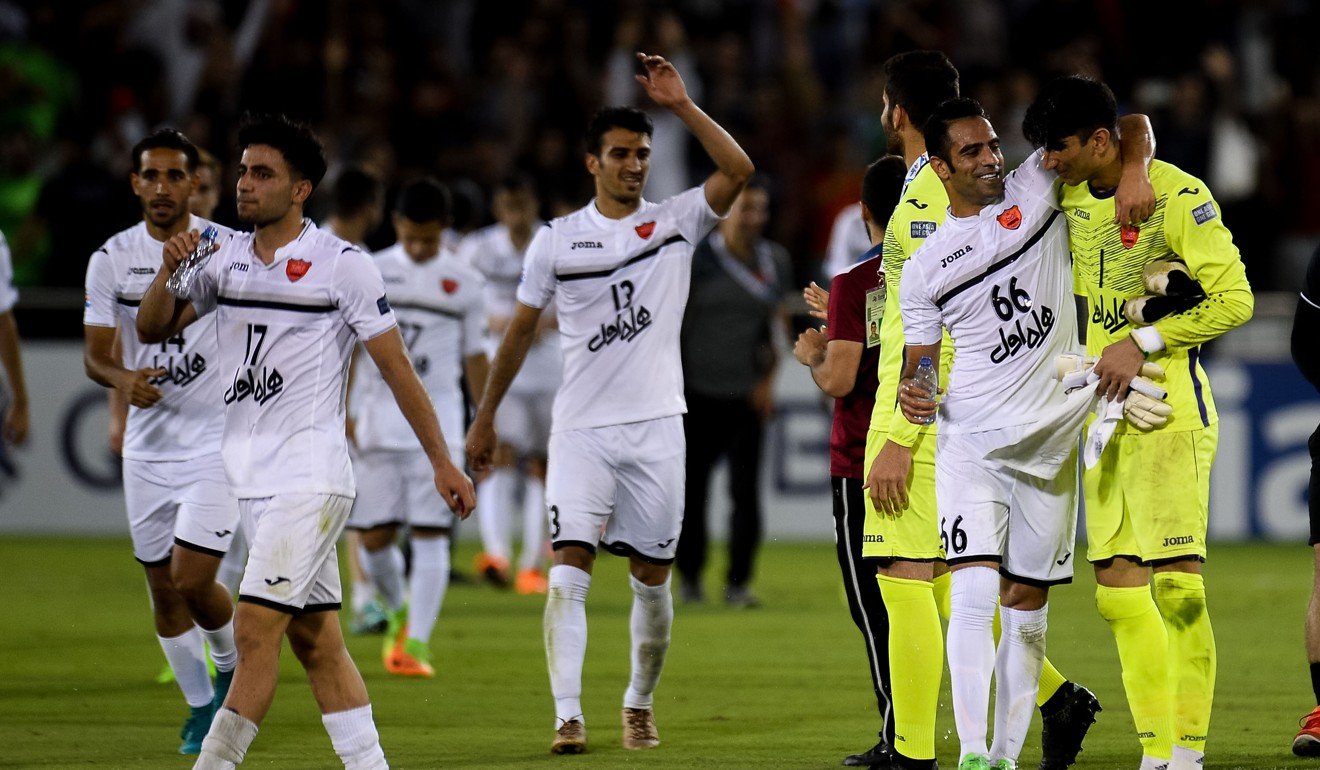
However, Qatar does appear to be stuck between a rock and a hard place: it needs to keep its neighbours onside, while also addressing potential security threats (several times, Isis has threatened to bomb the World Cup).
Until such time that Qatar reconciles these tensions, it will continue to be exposed to actions beyond its direct control. This suggests that the most significant implication of recent action against the country is the need for Qatar to have robust risk assessment and contingency planning procedures in place.
Fifa sponsors express ‘grave concerns’ over Qatar World Cup labour conditions
With the World Cup being positioned by the Qataris as a regional tournament, it needs the likes of Saudis and Egyptians to travel to the country.
However, with airlines such as Etihad and Emirates now having stopped flights into Doha, how people might travel to Qatar should this happen again during the World Cup would be a major concern both for the country’s Supreme Committee and for Fifa.
Similarly, the competition is intended by the Qataris to be the sort of nation-branding opportunity the 2008 Olympic Games was to China.
This will be problematic if a significant swathe of countries from which Qatar is hoping to engage fans have been disaffected by Doha’s government.
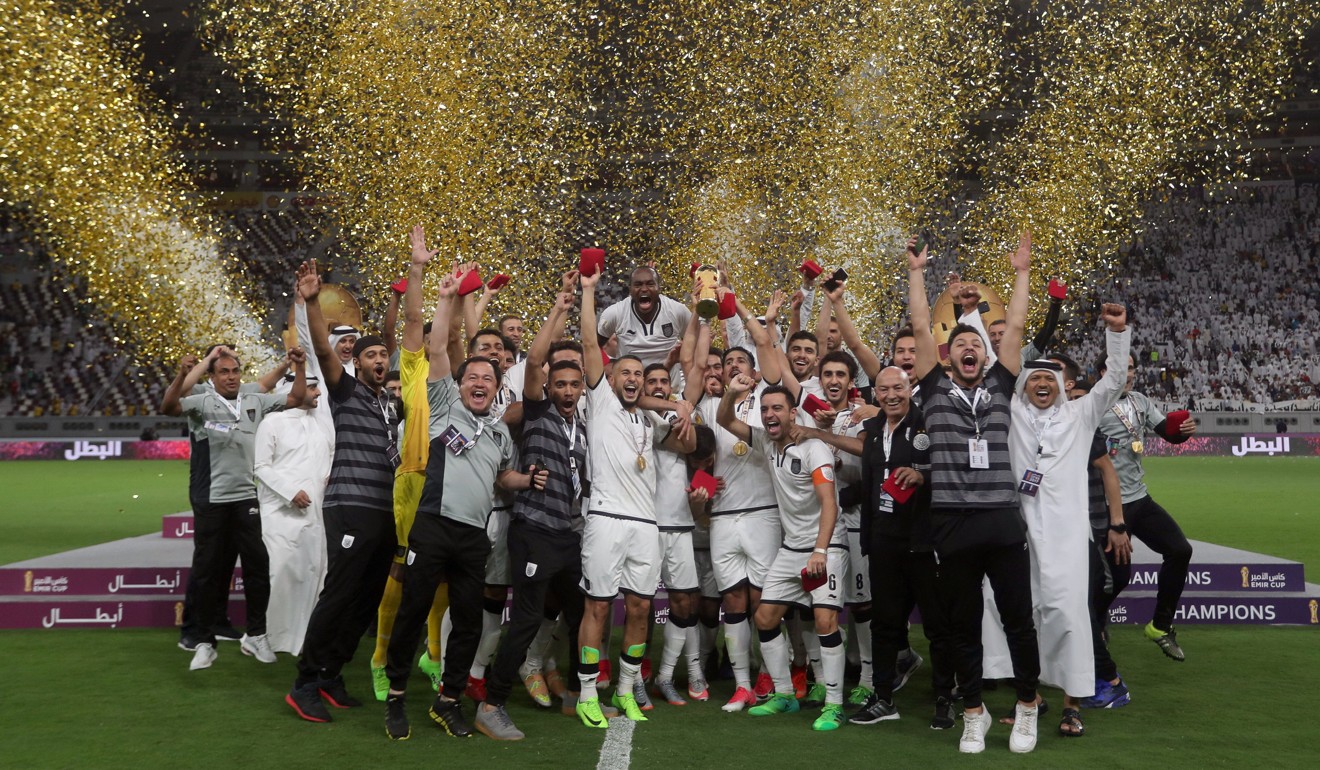
At the same time, events in Iraq, Syria and elsewhere in the Middle East and North Africa region continue to set a backdrop to World Cup 2022 that simply cannot be ignored.
As recent terrorist attacks in Paris and Manchester have illustrated, sports and entertainment venues can be a focus for attacks.
Qatar is promising a compact tournament, with most of the venues located relatively close to one another; hence, it is arguable that the World Cup will be especially exposed to terrorist threats.
Amnesty International accuses Qatar of abusing Fifa World Cup workers
Robust security measures will no doubt be in place, although the question remains about the extent to which Qatar might reach out to and engage with potential attackers (which would presumably irk the countries that have just acted against it).
Qatar’s staging of the World Cup has, in many ways, been intended to mark the country’s ascendancy to a position of regional and global respectability, as well as to signal a new maturity for a country that only gained independence from Great Britain in 1971.
However, with maturity comes responsibility and behavioural expectation. As far as the sporting dimension goes, the key question is: has Qatar got what it takes to successfully host the World Cup? And what will this new development mean for the country, the 2022 tournament, and Doha’s sports investments in general?

